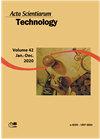A novel moving window-based power spectrum features for single-channel EEG classification using machine learning
IF 0.6
4区 综合性期刊
Q3 MULTIDISCIPLINARY SCIENCES
引用次数: 0
Abstract
Electroencephalogram (EEG) signal classification is a crucial and very difficult task. Meanwhile, extracting features that are representative and able to discriminate different types of EEG signals is a complex task. Such features are usually fed to machine learning algorithms to classify the EEG signals based on the extracted features. This paper proposed a highly accurate and real-time features extraction method that can be used to help physicians in detecting different types of seizures and states in EEG signals characterized by a set of features extracted from the power spectrum of the EEG window. This is achieved by applying the following four steps. First, the EEG signals dataset contains different classes of EEG signals: Normal Eye Closed, Normal Eye Opened, Focal Seizure, Non-Focal Seizure, and Ictal Seizure activities. Second, each EEG signal has a length of 4097 samples sampled with a sampling frequency of 173.6 Hz which resulted in 23.6 seconds in length, this signal will be truncated into windows (Sub-signals) with a length of 349 samples (Approximately 2 seconds) with a total number of 12 windows for each signal. Afterward, the Fourier Transform (FT) based power spectrum will be computed for each window, then a set of different features are extracted from each window's FT power spectrum, and these features are classified using different Machine Learning (ML) algorithms. The results showed that the proposed methodology yields around 98% accuracy for the five different classification scenarios using different ML algorithms. The suggested method is hence robust, fast, real-time, accurate, and simple.一种新的基于移动窗口的功率谱特征用于单通道脑电分类
脑电图(EEG)信号分类是一项关键而又困难的工作。同时,提取具有代表性且能够区分不同类型脑电信号的特征是一项复杂的任务。这些特征通常被输入到机器学习算法中,根据提取的特征对脑电信号进行分类。本文提出了一种高精度、实时性高的特征提取方法,可以帮助医生检测EEG信号中不同类型的癫痫发作和状态,这些信号是通过EEG窗口功率谱提取的一组特征来表征的。这可以通过应用以下四个步骤来实现。首先,EEG信号数据集包含不同类别的EEG信号:正常闭眼、正常睁眼、局灶性癫痫发作、非局灶性癫痫发作和癫痫发作活动。其次,每个EEG信号的采样长度为4097个样本,采样频率为173.6 Hz,长度为23.6秒,该信号将被截断为长度为349个样本(约2秒)的窗口(子信号),每个信号共有12个窗口。然后,计算每个窗口的傅立叶变换(FT)功率谱,然后从每个窗口的FT功率谱中提取一组不同的特征,并使用不同的机器学习(ML)算法对这些特征进行分类。结果表明,对于使用不同ML算法的五种不同分类场景,所提出的方法的准确率约为98%。该方法具有鲁棒性好、快速、实时、准确、简便等特点。
本文章由计算机程序翻译,如有差异,请以英文原文为准。
求助全文
约1分钟内获得全文
求助全文
来源期刊

Acta Scientiarum-technology
综合性期刊-综合性期刊
CiteScore
1.40
自引率
12.50%
发文量
60
审稿时长
6-12 weeks
期刊介绍:
The journal publishes original articles in all areas of Technology, including: Engineerings, Physics, Chemistry, Mathematics, Statistics, Geosciences and Computation Sciences.
To establish the public inscription of knowledge and its preservation; To publish results of research comprising ideas and new scientific suggestions; To publicize worldwide information and knowledge produced by the scientific community; To speech the process of scientific communication in Technology.
 求助内容:
求助内容: 应助结果提醒方式:
应助结果提醒方式:


